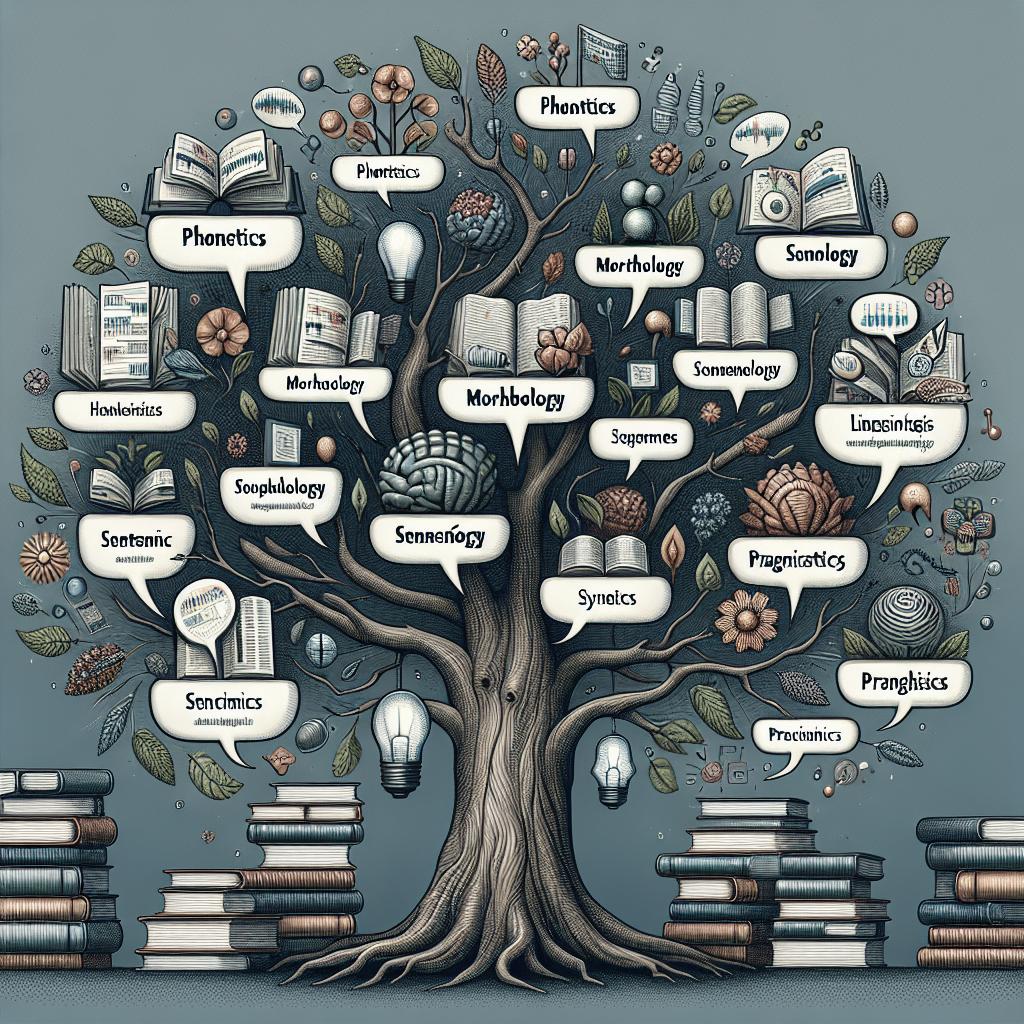<>
Comparative linguistics, a key discipline within historical linguistics, systematically examines how languages evolve and relate to one another over time. By deciphering patterns and constructing language families, experts can trace back the development of languages to common ancestors, shedding light on human migration, cultural exchange, and the evolution of communication. This blog post delves into some foundational laws and methods that underpin comparative linguistics, including Grimm’s Law, Grassmann’s Law, and Verner’s Law, each highlighting specific linguistic transformations. We’ll also critically analyze the realism of comparative linguistics results and reflect on the assumptions that guide these methodologies.
How realistic are the results?
The accuracy of comparative linguistics findings often hinges on rigorous data analysis and the reliability of linguistic evidence. By reconstructing proto-languages and mapping phonetic and lexical changes, linguists can create plausible linguistic lineages. However, this method relies heavily on surviving documentation and oral traditions, which may not always be complete or perfectly preserved, thus occasionally leading to speculative reconstructions. One challenge lies in distinguishing genuine linguistic relationships from mere coincidences. While certain sound patterns and vocabulary similarities can suggest shared ancestry, they might also arise independently in different languages owing to universal semantic needs or human physiological limitations. Therefore, while comparative linguistics can offer insightful and compelling narratives about language development, the interpretations are often tentative and subject to revision as new data or improved analytical methods become available. Lastly, interdisciplinary approaches—incorporating genetic, archaeological, and anthropological evidence—can enhance the realism of comparative linguistics results. By corroborating linguistic theories with findings from other scientific fields, researchers can create a more nuanced and substantiated picture of linguistic evolution and migration patterns, thereby increasing the confidence in their results.
A note on the assumptions:
Assumptions in comparative linguistics play a vital role in shaping the methodologies and interpretations. One primary assumption is the Regularity Hypothesis, which posits that phonetic changes in languages occur in a systematic, regular fashion over time. This hypothesis underpins many comparative methods and allows linguists to make credible connections between languages that, on the surface, may appear unrelated. Another key assumption is the existence of a common proto-language from which related languages diverged. Reconstructing this proto-language involves comparing cognates—words in different languages that reflect a common origin—and identifying systematic phonetic correspondences. However, this process necessitates the assumption that the available data represent an accurate and complete linguistic picture, a condition that is not always met. Cultural and societal factors, such as migration, conquest, and trade, also influence language development. Hence, linguists must consider historical and cultural contexts when making assumptions about language relationships. Ignoring these facets can lead to overly simplistic or erroneous conclusions. Therefore, the assumptions in comparative linguistics should be treated with caution and continually reassessed in light of new evidence and theoretical advancements.
Grimm’s Law (Germanic)
Grimm’s Law, named after the philologist Jacob Grimm, outlines a set of systematic phonetic changes in the Germanic languages. It describes how certain consonants in Proto-Indo-European (PIE) transformed as they transitioned into early Germanic languages. For instance, the PIE voiceless stops p, t, and k became the Germanic fricatives f, þ (th), and h respectively. This discovery was groundbreaking as it provided concrete rules explaining phonetic divergences and cementing the systematic nature of language change. Understanding Grimm’s Law allows linguists to trace back the origins of Germanic words and reconstruct parts of the Proto-Germanic language. Its implications extend beyond phonetics, influencing morphologists and syntacticians in observing how these sound shifts affect broader grammatical structures. This paved the way for further investigations into other language families, reinforcing the hypothesis that languages evolve in regular and predictable ways. However, Grimm’s Law is not free from exceptions. Some words do not adhere to this pattern, indicating that linguistic change is influenced by multiple factors, including social and environmental contexts. Subsequent laws and principles, like Verner’s Law, emerged to address these anomalies, adding layers of complexity and depth to the initial findings of Grimm’s Law.
Grassmann’s Law (Sanskrit and Greek)
Grassmann’s Law, named after the German mathematician Hermann Grassmann, addresses another important phonetic phenomenon in Indo-European languages, particularly Sanskrit and Ancient Greek. This law explains the occurrence of aspirate dissimilation, where two aspirated sounds in a word change to a single aspirate and a non-aspirate. For instance, the PIE root *dheugh- yields Sanskrit duhitā, meaning « daughter, » due to the dissimilation process. This law reveals the intricate, rule-governed nature of phonetic change across Indo-European languages, enhancing our understanding of their historical relationships. It also underscores the importance of considering specific phonetic environments in the study of linguistic evolution, as the presence of multiple aspirates within a word can trigger unique transformations not captured by broader rules like Grimm’s Law. Grassmann’s Law has profound implications for both synchronic and diachronic linguistic studies. Synchronic analyses, which focus on languages at a particular point in time, benefit from insights into how phonetic environments shape phonological systems. Diachronic studies, examining language change over time, gain a clearer understanding of the historical processes leading to the current phonetic configurations in Sanskrit and Greek, reinforcing the comparative methodology’s precision and depth.
Verner’s Law (Germanic)
Verner’s Law, named after Danish linguist Karl Verner, expands upon Grimm’s Law by accounting for several inconsistencies and exceptions. It focuses on the influence of accent (stress) on phonetic changes within Proto-Germanic languages. Specifically, Verner’s Law explains that voiceless fricatives resulting from Grimm’s Law became voiced when the preceding syllable was not stressed. This insight resolved many anomalies and supported the systematic nature of linguistic evolution. For example, while Grimm’s Law predicts that the PIE t should become the Germanic þ, Verner’s Law clarifies that it could also become *d if the preceding vowel was unstressed. This not only amended the predictions of Grimm’s Law but also highlighted the importance of prosodic features, such as stress and intonation, in language change. Verner’s contribution provided a more comprehensive understanding of Germanic phonetic transformations, reinforcing the overall coherence and predictability of linguistic evolution. Verner’s Law also advocates for the necessity of multi-faceted analysis in comparative linguistics. By integrating prosodic elements, it offers a more nuanced perspective, encouraging linguists to look beyond phonetic and lexical correspondences alone. This holistic approach enriches the field, paving the way for more accurate reconstructions of proto-languages and deeper insights into the mechanisms driving language change.
Future prospects
| Law/Methodology | Key Insights | Important Factors | |——————|————–|——————-| | Grimm’s Law | Describes systematic phonetic changes in Germanic languages | Proto-Indo-European consonant shifts, phonetic regularity | | Grassmann’s Law | Explains aspirate dissimilation in Sanskrit and Greek | Phonetic environment, aspirate changes | | Verner’s Law | Accounts for exceptions in Grimm’s Law due to stress | Influence of stress on phonetic changes, prosodic elements | | Assumptions | Foundations of comparative methodologies | Regularity Hypothesis, Proto-language reconstruction | | Realism of Results | Challenges and corroboration of linguistic findings | Historical context, interdisciplinary evidence | The future of comparative linguistics looks promising, with ongoing advancements enriching our understanding of language evolution. As new data and methodologies emerge, combining linguistic evidence with genetic, archaeological, and anthropological insights will likely refine our reconstructions of ancient languages and better illuminate the intricate web of human communication through the ages.


